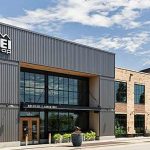Unifi Inc. reported a net loss of $9.1 million or 15 cents
per share, in the second quarter ended Dec. 28, versus a deficit of $7.7
million, or 13 cents, in the same quarter last year. Net sales tumbled to $125.7 million for the quarter, down
from $183.4 million in the same quarter last year.
The yarn company said sales were negatively impacted by the reduced demand for the
Company's products caused by sharp declines in consumer spending and
compounded by the related effect of excess inventory across the
respective supply chains. In addition, the prior year quarter contained
approximately $7 million of sales from its commodity POY facility in
Kinston N.C., which ceased operations during that quarter.
For the December quarter, the loss from continuing operations before taxes
was $8.7 million,
which compares to a loss from continuing operations before taxes of
$13.6 million. The prior year quarter included the negative
impact of $6.3 million in restructuring and severance charges and $2.2
million of impairment charges. The decrease in current quarter results
was predominately driven by the decreased demand and higher priced raw
material purchased from the first fiscal quarter working its way
through the company's inventory.raw material purchased from the first fiscal quarter working its way through the Company's inventory.
“Retail
sales in our primary end-use segments: apparel, home furnishings and
automotive, were all down dramatically in the quarter, resulting in a
significant buildup of inventory throughout the supply chain,” said Ron
Smith, Chief Financial Officer for Unifi. “In response, brands and
retailers cancelled orders and fabric mills curtailed production
suddenly during the fourth quarter, which dramatically reduced demand
for our products. Based on current retail sales estimates, we expect it
to take an additional four to six months for this built-up inventory to
completely work through the supply chain. Accordingly, we anticipate
continued pressure on our sales throughout the second half of the
fiscal year. We do, however, expect conversion margins and cost to
improve during the second half of the fiscal year, and we anticipate
continued strength in our sales to the CAFTA region as more apparel
production is shifted there from Asia to reduce the overall sourcing
cycle.”
Net loss for the first half of fiscal 2009 was $9.7
million or 16 cents per share compared to a net loss of $16.9 million or 28 cents per share for the same prior year period. Net sales for the first
half of fiscal 2009 were $294.7 million compared to net sales of $353.9
million for the prior year period, which included approximately $19
million of sales from its now closed Kinston N.C. facility.
Cash-on-hand
at the end of the December 2008 quarter was $12.6 million, a decrease
of $7.8 million from the cash-on-hand at the end of the September 2008
quarter, as $6.8 million in proceeds from asset sales were offset by
working capital uses, the semi-annual note interest payment and the
currency effect on cash in Brazil. Total cash and cash equivalents at
the end of December, including restricted cash, were $32.4 million
compared to $47.7 million at the end of September. At the end of
December, long-term debt was reduced to $193.7 million from $196.5
million as of the end of September.
Bill Jasper, president and
CEO of Unifi, said, “We are confident that the Company has the
financial stability to withstand one of the harshest operating
environments we have seen in decades and to outlast the inventory
de-stocking that is taking place throughout the supply chain. We
believe we have strong liquidity and a debt structure that will allow
us to pursue our strategies without the undue pressure of financial
maintenance covenants. Although uncertainty around the depth and
duration of the recession makes it difficult to project when sales will
rebound, our cost savings initiatives and the improvements already in
place will allow us to weather the storm and emerge as a more
competitive and more profitable company. We will continue to invest in
the development and commercialization of new products and branded
premium value-added yarns during these difficult times to help
capitalize on the opportunities that will arise as market conditions
normalize. We are focused on aggressively improving our business
fundamentals and strengthening our overall market position.”












